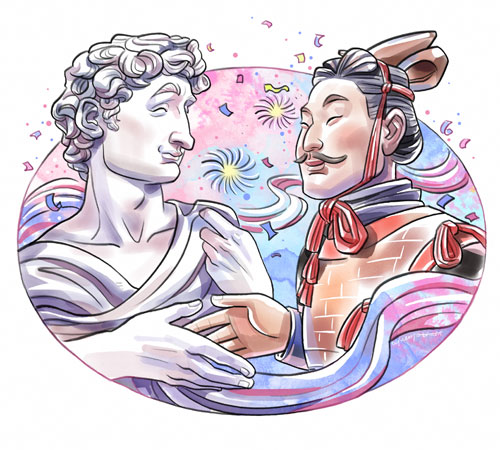[Analytics] BRI can help serve economic interests of Italy and its allies

President Xi Jinping’s visit to Italy from March 21 to 24 elevated Sino-Italian relations to a new level. Since the beginning of diplomatic relations in the 1970s China and Italy have always framed their relations as an attempt to reinforce their independence in the international community and mutually strengthen their economies. The recent signing of the memorandum of understanding on the Belt and Road Initiative during President Xi’s visit to Italy is in line with that trend. Enrico Fardella specially for the China Daily.
Most recently, Italy’s traditional allies have turned more critical of China: the United States has labelled China as a threat while the European Commission used the term “systemic rival” to describe China. Italy’s traditional allies are therefore interpreting Rome’s proactive policy toward Beijing, especially the signing of the MoU on the BRI, as harmful to Western countries’ interests.
The signing of the MoU, however, conceptually follows Italy’s continuous support to the Chinese initiative as seen in former Italian prime minister Matteo Renzi’s visit to China in 2014, Italy’s participation in the Asian Infrastructure Investment Bank, former prime minister Paolo Gentiloni’s attendance at the Belt and Road Forum for International Cooperation in 2017-the only head of state or government of a G7 country to do so-and Italian President Sergio Mattarella’s visit to Beijing the same year.
Contrary to what some Western countries claim, Italy is not biased toward China. Italian diplomats have joined their European colleagues in the past to criticize some of the Belt and Road elements that don’t match European and Italian interests and values.
Influenced by the deteriorating stability in the Mediterranean region, Italy’s approach to the Belt and Road Initiative goes beyond its traditional and open attitude toward China. The combined effect of the global financial crisis and “Arab Spring” on Southern European countries has turned the Mediterranean region into an “arc of tension” marked by political instability, economic dislocation and sometimes extremist violence.
These developments-illegal immigration, market disruptions and security threats-pose a direct risk to the trade and security interests of Italy and China both.
It is therefore natural for Italy to take measures to mitigate the dangers created by instability across the South-North axis of the region, by pro-actively working with China to transform the maritime corridor of the BRI connecting Europe to Asia into one of peaceful development.
In this context, Italy can prove to be a key partner for Beijing and a powerful agent for the promotion of stability and development in the Mediterranean region thanks to its traditional economic and political role in the Mediterranean.
Five years after its birth, due to the new international situation, the BRI might now enter a new stage, a stage that will leave more room for more balanced, mutually beneficial and more transparent Sino-European cooperation.
US Secretary of State Mike Pompeo recently said: “China broadly presents a real opportunity, they are an economic powerhouse and there are lots of opportunities for countries to do business with China. When China behaves transparently, when China is engaged in real economic transactions, we are untroubled.”
The text of the Sino-Italian MoU on the Belt and Road Initiative, which seems in line with the “transparency” required by the EU and the US, could therefore be interpreted as a step forward, a progress that indicates the beginning of a new phase for the BRI. If Italy takes this process forward, it might build a new convergence point for its and its allies’ national interests.
The author is an associate professor at History Department, Peking University. The views don’t necessarily represent those of China Daily.